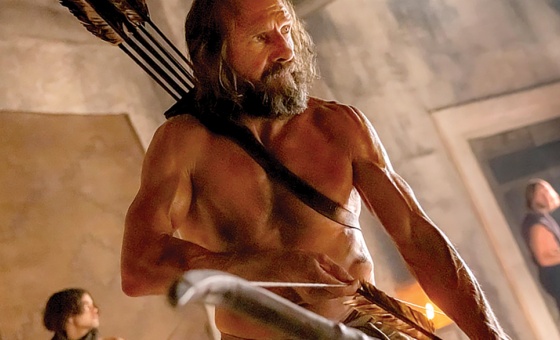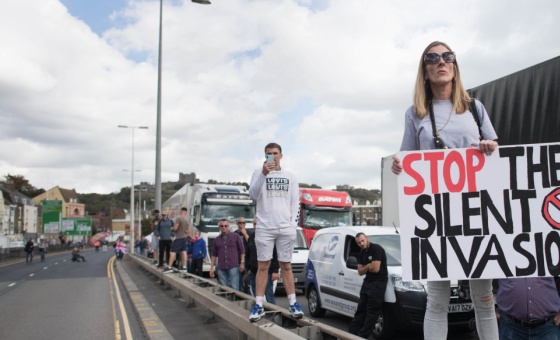This is the last article you can read this month
You can read more article this month
You can read more articles this month
Sorry your limit is up for this month
Reset on:
Please help support the Morning Star by subscribing here
THE United States, the world’s most powerful country with the largest economy and military budget, feels easily threatened. On its legislative books is the International Emergency Economic Powers Act (IEEPA) which authorises the president to declare the existence of an “unusual and extraordinary threat … to the national security, foreign policy, or economy of the United States” that originates “in whole or substantial part outside the United States.”
Under its provisions, the US president can block trade and investment and freeze assets to deal with the threat.
It is this executive power that the US is once again using against one of the poorest countries in the Americas: Nicaragua.
It was previously subjected to US sanctions under the IEEPA between 1985 and 1990 when the Sandinista government fought to preserve its social and economic reforms against the US’s destabilisation campaign involving a trade embargo and the covertly funded “contra” war of terror.
Three decades later, the US is intervening again in the affairs of Nicaragua, where Daniel Ortega is serving his third term as president.
The Nicaraguan Investment Conditionality Act (Nica) is a rehash of legislation approved by the House of Representatives in September 2016 but unable to get Senate approval and presidential sign-off before the November 2016 presidential elections.
The legislation states that the US will oppose loans to Nicaragua unless it promotes democracy, strengthens the rule of law, and respects freedom of expression to the satisfaction of the US State Department.
The Act enables the US, which effectively has veto powers within international lending institutions, to block all loans to Nicaragua from the World Bank and Inter-American Development Bank.
These loans, currently running at $250 million annually, are being invested in education, social programmes, electrification, roads and other infrastructure initiatives.
The reintroduction of the legislation undermines an Organisation of American States (OAS) memorandum of understanding signed with the Nicaraguan government on a joint three-year plan to “strengthen the country’s institutions,” including the monitoring of the municipal elections to be held later this year.
NICA has met with unanimous condemnation in Nicaragua by the government, trade unions, the National Assembly, the private sector and all political parties.
This attack on Nicaragua is worrying — particularly since “NICA could sail through Congress due to sheer ignorance on the part of the representatives and senators about what its effects would be,” according to Chuck Kaufman of the US-based Alliance for Global Justice.
It is of special concern given that it is part of a continuing pattern of US intervention in the region, exemplified most clearly by the its relentless campaign against Venezuela.
Since Hugo Chavez was elected president in 1998 and led the Bolivarian revolution to tackle deep-seated problems including poverty, illiteracy and income inequality, the US has consistently sought regime change through a range of interventionist methods, from sanctions and funding opposition groups through to coups.
In 2002, Washington supported an attempted coup, both before and immediately after its execution.
Its failure did not stop another major coup plot with US involvement in 2006, when Venezuelan authorities said they found evidence the US embassy in Caracas had been secretly collecting military information.
Coups, of course, need a well-organised internal opposition.
Another aspect of US intervention has been the channelling of over $100m between 2002 and 2014 to opposition groups through the National Endowment for Democracy and the US Agency for International Development.
The US has also applied economic sanctions against Venezuela, hitting state oil company PDVSA in 2011 and state arms manufacturer CAVIM in 2013.
Sanctions against specific Venezuelan officials were authorised in 2014 by the Venezuela Defense of Human Rights and Civil Society Act signed by former US president Barack Obama in December 2014.
The Act was promoted as a response to alleged human rights violations committed during the “Salida” (ousting) violent protests in Venezuela of 2014, fomented by the right-wing opposition to prompt a coup to oust the elected, constitutional president.
In March 2015, Obama issued an executive order imposing another round of sanctions, describing Venezuela as an “unusual and extraordinary threat” to the US.
This sparked widespread condemnation in the region, pressurising the Obama administration eventually into admitting Venezuela doesn’t pose a threat.
This has not, however, deterred the US from stepping up the use of another tool in its destabilisation kit.
Its latest move to intervene in Venezuela, the May 2017 Venezuela Humanitarian Assistance and Defense of Democratic Governance Act, not only seeks to pump $10m to Venezuela as part of a “humanitarian assistance” package but also looks to provide funding for efforts to undermine Nicolas Maduro’s government.
The cash is for “democracy promotion” — $500,000 for work with the OAS to observe elections and $9.5m for work directly or through NGOs on human rights, supporting independent media and open internet access and combating corruption.
The Act aims to support the move by OAS secretary general Luis Almagro to invoke the Democratic Charter against Venezuela to force it, in Almagro’s words, to “return to a democratic path.”
The Act instructs the US secretary of state to use its permanent mission to the OAS to “take additional steps” to help Almagro in his quest.
Almagro’s move was denounced by Mark Weisbrot, co-director of the Centre for Economic and Policy Research in Washington DC, as “a public relations stunt to support the Venezuelan opposition’s current efforts at regime change in Venezuela,” and indeed OAS member states rejected the move.
However, Venezuela is acutely aware of the danger of renewed interventionism, and therefore announced in April 2017 that it would withdraw from the OAS because of Almagro’s continued attacks against it.
Whether the motivation is the lure of Venezuela’s massive oil reserves or Nicaragua’s renewed “threat of a good example” through sustained progressive reforms, Donald Trump’s US has both countries in its interventionist sights.
- On Tuesday July 4 Tariq Ali will be joined by former Labour MP Colin Burgon, National Union of Teachers former general secretary Christine Blower and others from 6.30pm at ITF House, 49-60 Borough Road, London, SE1 1DR for an emergency solidarity event against Donald Trump’s sanctions on Venezuela and Nicaragua. Tickets and information at bit.ly/tariqontrump.









